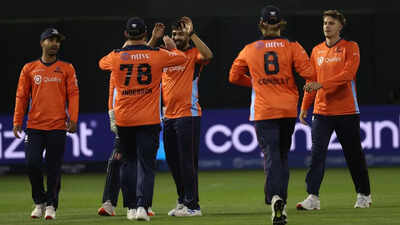WTC Final: History made after 145 years at Lord’s as Australia and South Africa share rare record | Cricket News

The opening day of the World Test Championship (WTC) Final between South Africa and Australia at Lord’s delivered high drama, exceptional bowling, and a historic statistical anomaly. Kagiso Rabada stole the show with a brilliant five-wicket haul, helping South Africa bowl out Australia for just 212. Marco Jansen provided strong support with three wickets. But Australia fought back hard in the final session. Mitchell Starc led their charge with two wickets, while Pat Cummins and Josh Hazlewood chipped in with one each to leave South Africa struggling at 43 for 4 at stumps. Day 1 also produced a bizarre moment never seen in 145 years of Test cricket in England. For the first time in 561 Tests on English soil, both teams’ No. 1 batters were dismissed for zero in the first innings. Australia’s Usman Khawaja and South Africa’s Aiden Markram were the unfortunate pair.
Rabada’s spell of 5 for 51 in 15.4 overs not only swung momentum in South Africa’s favour but also elevated his place in the history books. The 30-year-old overtook Allan Donald’s tally of 330 Test wickets, reaching 332 in 71 matches, becoming South Africa’s fourth-highest wicket-taker in the format.Quiz: Who’s that IPL player? Rabada became just the second bowler after Kyle Jamieson (2021 final vs India) to take a five-for in a WTC Final. He’s also the only South African after Jacques Kallis (1998 ICC Knockout Trophy final) to do so in an ICC tournament final. With 11 wickets in five ICC knockout matches at an average of 19.27, Rabada now sits third among South African wicket-takers in such games, tied with Shaun Pollock and Allan Donald, and behind Jacques Kallis (14).





